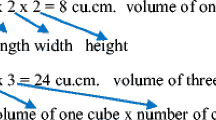Abstract
As stakeholders clamor for alternative teaching and learning strategies, many options are worthy possibilities. Central to choosing among such alternatives are those that require little outlay of cash, can be used in practically any learning environment, and are proven to be beneficial to both students and educators. In order to accommodate a change from lecture as the primary format of education, choices are available for the educator who wants to expand into student-centered education. One such method is cooperative learning where interdependence becomes the integral element of learning. As a teaching tool, it provides many of the benefits necessary for efficient education, including improvements in group work, critical thinking, individual responsibility, communication, and interpersonal relationships. Additionally, ample research touts the effectiveness of cooperative learning as a proficient tool for education. In order to evaluate cooperative learning in the classroom, a number of reasons are presented in support of cooperative learning as are examples and results from a number of exercises used in both micro- and macroeconomics courses.
Similar content being viewed by others
References
Association of American Colleges and Universities. (2008). “High-Impact Educational Practices.”. http://www.aacu.org/leap/hip.cfm.
Allen, Elaine, and Jeff Seaman. (2013). Changing Course: Ten Years of Tracking Online Education in the United States. Babson Survey Research Group. P.4.
Barone, M. (2010). The Higher Education Bubble. National Review Online. http://www.nationalreview.com/articles/245715/higher-education-bubble-michael-barone.
Berrett, Dan. (2011). U. of Nebraska Regents Adopt a Policy to Curb Creep and Keep Costs Down. The Chronicle of Higher Education. P.a16.
Dadach, Z. E. (2013). Quantifying the effects of an active learning strategy on the motivation of students. International Journal of Engineering Education, 29(4), 1–10.
Davidson, N., & Major, C. H. (2014). Boundary crossings: cooperative learning, collaborative learning, and problem-based learning. Journal on Excellence in College Teaching, 25(3&4), 7–55.
Davidson, N., Major, C. H., & Michaelsen, L. K. (2014). Small-group learning in higher education—cooperative, collaborative, problem-based, and team-based learning: an introduction by the guest editors. Journal on Excellence in College Teaching, 25(3&4), 1–6.
Education Research Consumer Guide. (1992). http://www.ed.gov/pubs/OR/ConsumerGuides/html
Garfield, J. B. (1994). Beyond testing and grading: using assessment to improve student learning. Journal of Statistics Education, 2(1), 41–52.
Georgia Department of Education (2008) http://www.gadoe.org/Curriculum-Instruction-and-Assessment/CTAE/Pages/Work-Based-Learning-.aspx
Hamermesh, Daniel S., (2011). The Know-Nothing Assault on Higher Education. The Chronicle of Higher Education. P.A44.
Johnson, Robert T., and Johnson, David W.,(2007). The Cooperative Learning Center at the University of Minnesota. http://www.co-operation.org.
June, Audrey Williams. (2011). Florida, With an Eye on Texas, Readies for Next Conflict Over Faculty Productivity. The Chronicle of Higher Education. P.a17-18.
NYTimes.com. (2011). Incentives Offered to Raise College Graduation Rates.”. http://computinged.wordpress.com/2011/04/01/incentives-offered-to-raise-college-graduation-rates-nytimes-com/.
Nuhfer, Ed and Pletsch, Carl. (2011) Where is the Motivation to Empower? The National Teaching & Learning Forum. 20(No.2),1–12.
Ransdell, M. (2005). The lucre of lecture vs. the call of cooperative learning in college classrooms. Classroom Essays in Education, 14, 38–45.
Young, J. R. (2008). Short and sweet: Technology shrinks the lecture. The Chronicle of Higher Education, 54(1), A9.
Author information
Authors and Affiliations
Corresponding author
Rights and permissions
About this article
Cite this article
Baumgardner, C. Cooperative Learning as a Supplement to the Economics Lecture. Int Adv Econ Res 21, 391–398 (2015). https://doi.org/10.1007/s11294-015-9545-9
Published:
Issue Date:
DOI: https://doi.org/10.1007/s11294-015-9545-9




